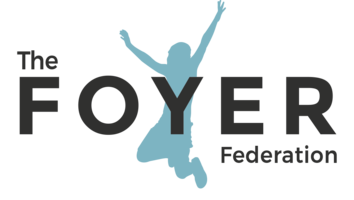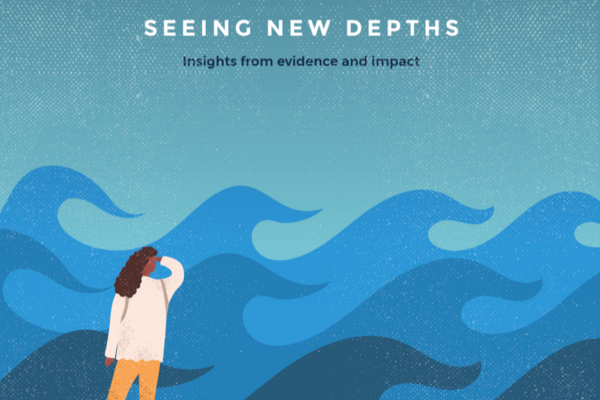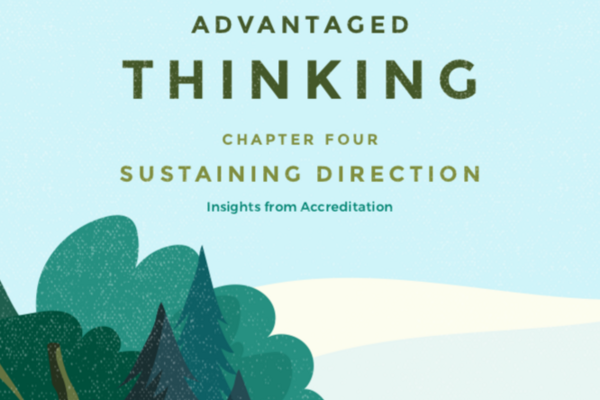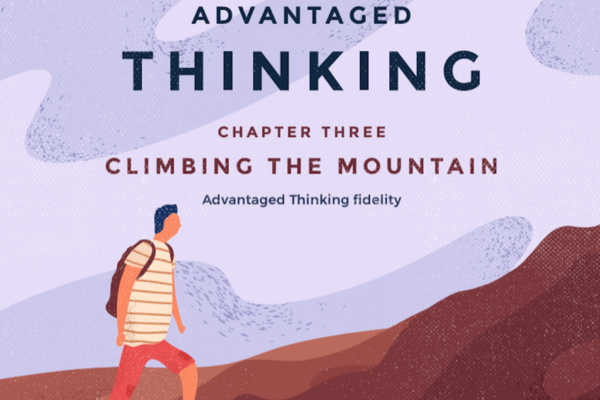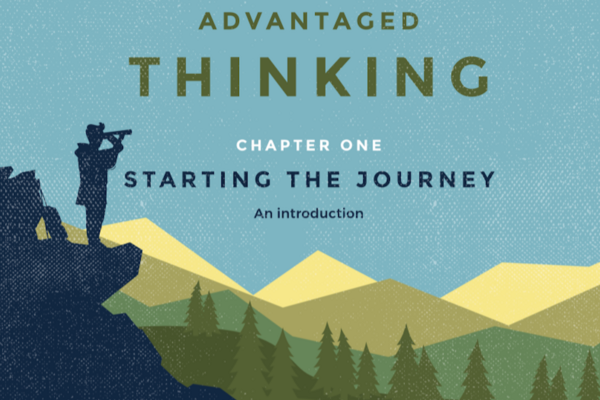“I see young people who are positive and engaged in their goals. I see them inspired and achieving in goals, education, employment and community connections. I hear young people talk about achieving, trying and succeeding. I see workers being challenged to work in different ways to support young people towards independence.” – Katie Hooper, Foyer Foundation Australia
Advantaged Thinking is improving outcomes for young people in services across the UK and around the world. But how does it work? Why does it work? And can we prove it? Seeing New Depths is the second chapter in our Advantaged Thinking journey series and will give you an understanding of the evidence base Advantaged Thinking is built on and the means to explain that evidence to others.
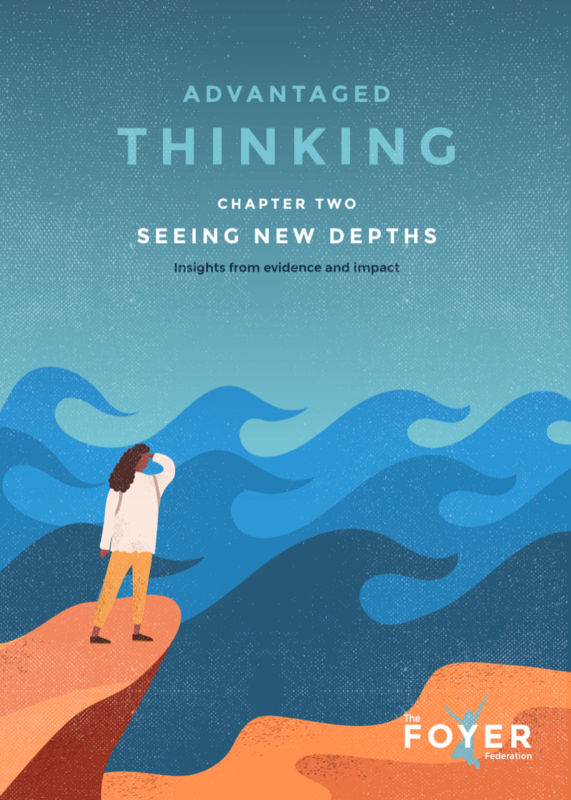
Where to start?
In January 2016, Dr Kaz Stuart and Ruth Browning produced a literature review for the Foyer Federation, published under the title ‘The Evidence Base for an Asset-Based Approach to Youth Housing’. The University of Cumbria was commissioned as part of the Foyer Federation’s work to fully express an Advantaged Thinking vision. This work provided the foundation for Foyer Federation’s Theory of Change for Advantaged Thinking.
Two foundational insights underpin the need for Advantaged Thinking:
- The evidence base for the ‘status quo’ in how we help people deal with personal and social challenges is extremely poor. We need to know that what we do works, and many traditional approaches can’t provide this insight.
- Traditional approaches for capturing evidence may not always be fit for purpose in an asset-based context, which weakens the range of available evidence to support our understanding of Advantaged Thinking.
The second chapter of Adventures in Advantaged Thinking covers:
- Evidence sources to promote Advantaged Thinking
- Impact areas to focus on Advantaged Thinking
- An introduction to the Foyer Federation’s Advantaged Thinking Theory of Change
- Applying the Theory of Change in practice
Key Learnings:
- Advantaged Thinking can prove particularly effective as a response to young people’s needs and goals in personal development, housing, education, employment and health, and there is an evidence base behind this assertion.
- What data we collect and how we do it must reflect a person-centred ethos. This means capturing evidence from people’s assets rather than their deficits, to track progression towards thriving aspirations rather than just short-term outputs.
- Achievements in softer outcomes can drive harder outcome areas; it is important to track a broad, holistic set of outcomes that reflect the interconnected relationships between different asset impact areas.
What are we doing?
We are bringing together experts in Advantaged Thinking at our Adventures in Advantaged Thinking event on 13 May 2022. We will facilitate learning and information exchange through a series of sessions, enabling practitioners to benefit from insights from other settings and organisations.
We will distribute our Adventures in Advantaged Thinking publication to key stakeholders across the youth and homelessness sectors, providing them with easy to access evidence and information to support the use of Advantaged Thinking approaches in their services. Moreover, we are making this publication free to access via our website, ensuring that evidence on Advantaged Thinking is available to anyone in an accessible format.
We know that collecting evidence of success in an asset-based way can be challenging. Therefore, we have plans in place to diversify our training offer, including tailored training on designing and implementing a Theory of Change compatible with Advantaged Thinking practices and approaches.
Inspiration from around the sector
An academic approach
Professor Kaz Stuart, PhD, is Director of the Centre of Research in Health and Society and Professor of Social and Health Inequalities. With an academic interest in participative research methods and strengths-based approaches, her publications include Evaluating Projects with Young People: Creative Research Methods.
In a case study produced with Steve Hillman, then Director of Policy and Impact at the Foyer Federation, published by The Centre for Youth Impact in 2017, she sets out how they had to reimagine their approach to match an Advantaged Thinking way of working.
“The key starting point for any interaction with young people was therefore a discussion and identification of what they can do and what they are good at – rather than a discussion of what they cannot do. The list of outcomes (assets) developed is a good way to consider a full range of assets that the young person might have. The young people said that this was a really important aspect of Foyers’ work, something that made them different to other services they accessed.
“The next step is for theories of change to list the activities that an organisation or service might provide. We turned this approach on its head and considered what a young person might want – this is asset-based, focusing on what they want, not what they need. This is the cornerstone of the Foyer’s ‘offer’; it is not a pre-defined list of structured activities, but a range of things on offer that a young person can choose to engage with.“
A cross-sector approach
The Centre for Youth Impact aims for all young people in the UK have access to high-quality services that support their social and emotional learning. To achieve this vision, they develop shared approaches to learning and evaluation, and support the youth sector to use them effectively. One of their three central ideas is that meaningful evaluation is a core component of reflective and equitable practice, which in turn sits at the heart of informal and non-formal learning.
The Centre for Youth Impact played a central role in evaluating The Listening Fund, which pooled funding from The Blagrave Trust, Comic Relief, the National Lottery Community Fund and the Esmée Fairbairn Foundation. This fund gathered resources on listening and user voice here to support the sector to listen more effectively. Once such resource was User Voice: Putting people at the heart of impact practice by NPC and Keystone. On the topic of evidence, they say:
“Collecting the right amount of quality data is key, and getting there might require some trial and error…Prioritise the most important outcomes in your theory of change and focus on measuring those.
“...When considering any evaluative activity, it is necessary to ask whether the evidence that you plan to collect could lead to improvements. Is the data going to be useful for decision-making? Too often, organisations collect large amounts of data and, although they may use it for demonstrating their impact, they have not thought about how to use the data to help them improve services. The purpose of user feedback is, ultimately, to improve the organisation’s work and therefore the outcomes for its users – and if it does not do that, the design or the organisational culture is wrong.“
Reflection questions
Q1. How does your Theory of Change fit the experience of people in your services?
Q2. What might you need to do differently to ensure you can capture more person-focused evidence that reflects growth in people’s strengths and abilities?
